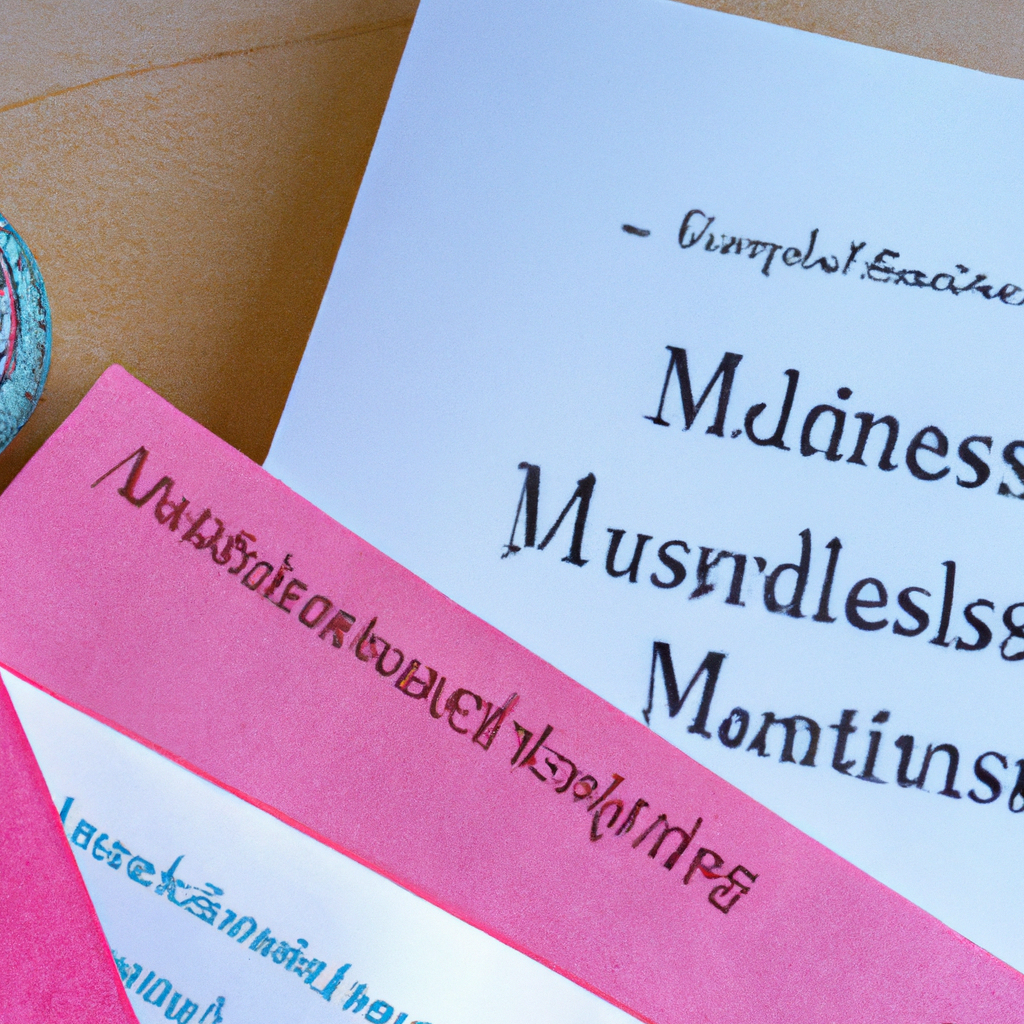The whirlwind of modern life can be overwhelming – and for the millions of people struggling with poor emotional wellbeing, finding a source of stability, comfort and even joy can be near impossible. But what if there was a tool readily available to anyone, that could help to manage the ups and downs of life and bring peace of mind? Enter Mindfulness. An ancient practice with far-reaching benefits, Mindfulness is a tool for emotional well-being that focuses on cultivating present-moment awareness. In this article, we will explore what Mindfulness is and the many ways it can positively shape emotional well-being.
1. Introduction to Mindfulness
Mindfulness is a helpful practice that can be used as a tool to help you maintain clarity and focus, and reach a sense of peace. Focusing the mind on the present moment can help reduce stress and modify how you respond to difficult situations. With regular mindfulness practice, you can learn how to cultivate an inner stillness and better handle the inevitable bumps in life.
The practice of mindfulness can help you become aware of how you react to stress and help you develop the tools to respond with clear-mindedness. Mindfulness helps cultivate:
- A steady and calm state of mind
- Heightened sense of presence and concentration
- Greater understanding of your responses and reactions
- A manageable approach to stressful situations
Mindfulness is an effective tool that you can learn and use to manage stress and remain balanced with your thoughts and feelings. With regular practice and mindfulness exercises, you can become more aware of your triggers and refine your responses; developing more empathy, resilience and emotional balance.
2. Understanding the Benefits of Mindfulness
Mindfulness is a powerful tool that can be used to improve mental, physical, and emotional wellbeing. Seeing an increase in mindfulness can lead to increased clarity, improved self-awareness, and improved relationships. Here are some of the main benefits seen from continuing to practice mindfulness:
- Reduction in stress and anxiety levels
- Reduction of chronic pain
- Better emotional regulation
- Increase concentration and focus
- Improve sleep quality
Learning how to properly practice mindfulness is key to reaping all the possible benefits. If practiced regularly, it can lead to greater self-understanding, acceptance, and more clarity about goals and values. It can also teach one to analyze feelings and ultimately learn how to cope with them.
3. Taking Action with Mindfulness Practices
In order to effectively use mindfulness practices, one must begin by taking action. Taking action with mindfulness can be both rewarding and meaningful if done mindfully.
- Mindful Breathing: Mindful breathing allows us to slow down and become more mindful of what is occurring around us. This practice can be done anywhere and it does not require any special equipment. All it takes is a few moments throughout the day where one can simply take some slow, deep breaths and become conscious of each inhale and exhale.
- Mindful Movement: Through mindful movement, we can become aware of our body and the sensations that come with it. This practice can be done anywhere – at home, work, or on vacation. It doesn’t involve a huge time commitment or any special skills. One can form a daily routine that involves spending a few minutes doing some stretches or going for a short walk.
- Journaling: Writing in a journal can be a powerful tool to practice mindfulness. By journalling, one can explore their thoughts, feelings, and emotions in greater detail. This can promote release and greater clarity of what is on our mind. One can simply start by writing whatever comes to our mind, without judgement. Journaling can be done not only for therapeutic purposes, but also to document our thoughts and observations of the world around us.
Once an individual begins consciously , it is important to be consistent and strive for progress. Just like physical exercise, taking part in mindful activities enables us to become more alert and aware of our thoughts and the environment around us. We can recognize negative and unhelpful patterns, heal and free ourselves from them, and learn from our experiences. Further, engaging in mindful practices can provide us with the energy to pursue our larger, life aspirations. Therefore, taking action with mindfulness can make profound changes in our lives.
4. Understanding the Impact of Mindfulness on Emotional Well-being
Mindfulness is a mental state which allows us to be fully aware of our present moment experiences. It can help us become more emotionally aware and improve our emotional well-being. Here are ways in which mindfulness can have an impact on our emotional health:
- Increasing empathy: Through mindfulness practice, we become more aware of our emotions and the emotions of others. This can lead to an increase in empathy and understanding, both of which are important for strong emotional health.
- Decreasing stress: Regular mindfulness practice can help us become less reactive to stressors and more resilient in the face of challenges. This, in turn, can help us stay balanced amid life’s difficulties.
- Enhancing self-awareness: Mindfulness increases our awareness of our thoughts, feelings, and physical sensations. This can make us more intuitive and insightful when it comes to understanding ourselves and others, making it easier to make healthy and mindful choices.
Mindfulness also can have an impact on our mental health, such as reducing negative thought patterns and improving the ability to relax. Another way mindfulness can benefit our emotional health is by teaching us healthy coping strategies that we can use to deal with difficult situations or emotions. Mindfulness can be a valuable tool for long-term emotional health and well-being. With regular practice, we can better understand our emotions and cope with life’s challenges more effectively.
5. Final Thoughts & Reflections on Mindfulness
Practicing mindfulness has been a great way to reduce stress, improve focus, and develop greater self-awareness. Here are my final thoughts and reflections:
- The power of being mindful: Taking moments of pause to just be present and observe without judgement, to take notice of the small, seemingly insignificant beauty that can be found in the world around us is a truly wonderful thing. It can be a great way to appreciate the blessings of life we often take for granted.
- Benefits of mindfulness: Engaging in mindfulness has a wide range of benefits, from improved mental clarity, increased emotional and physical wellbeing, to heightened productivity. Allowing ourselves the time to simply be present and observe can have a lasting impact on our wellbeing.
Mindfulness is something that can be incorporated into our daily lives to bring a sense of calmness, positivity, and contentment. It is an invaluable practice that I will certainly continue to cultivate in my life.
Applying mindfulness to your daily life is an empowering and enlightening process. By learning how to pay attention to our thoughts and moment-to-moment experiences, we can start to become more aware of the underlying emotions that often get buried beneath our daily hustle and bustle. Learning to live in the present helps us to focus on the needs of our mind and body, and better equip us to take on the challenges and joys life throws our way. Taking time out of each day to become mindful and emotionally aware will help us develop a newfound resilience and understanding of ourselves, and ultimately cultivate a sense of emotional well-being.




